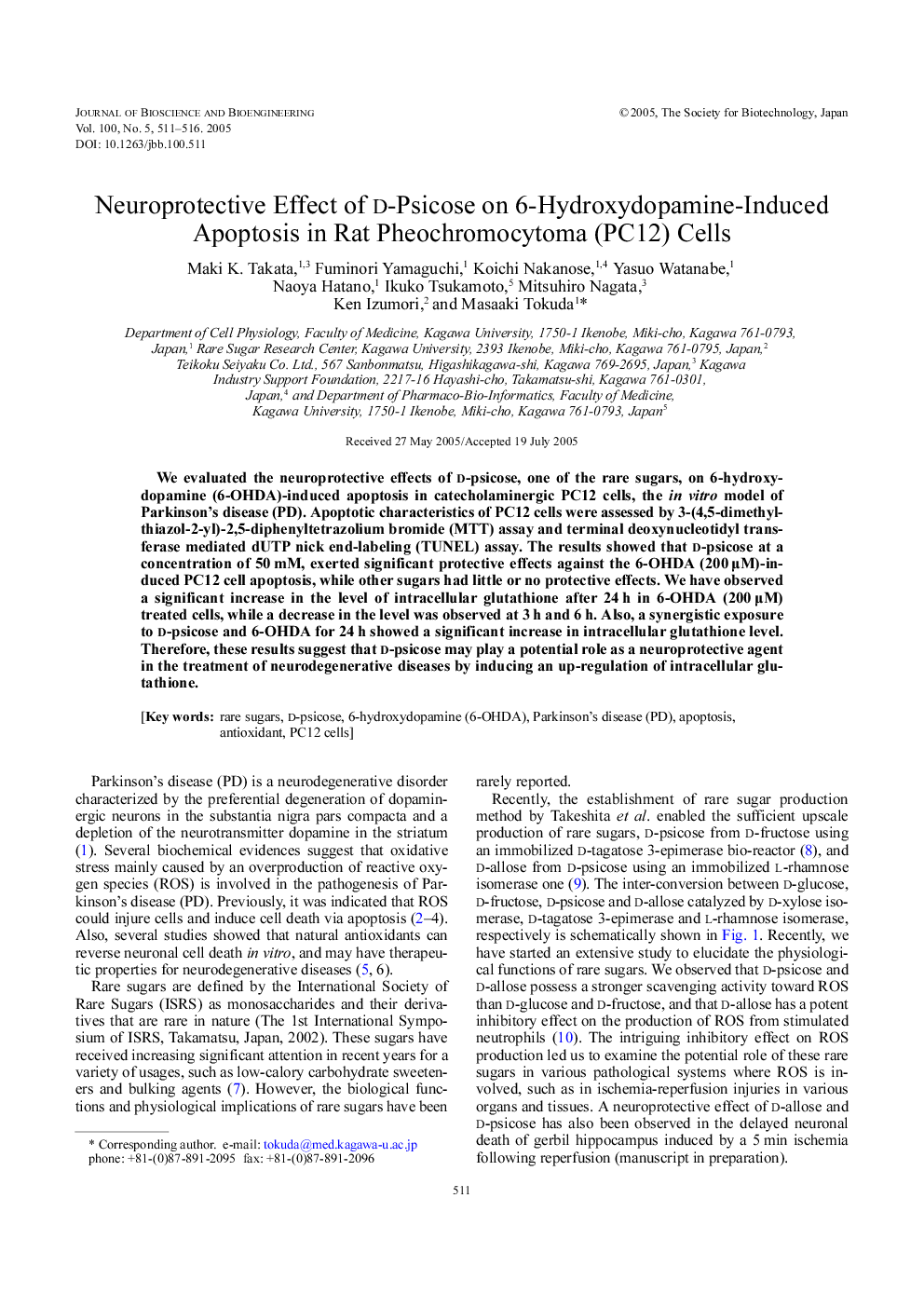| Article ID | Journal | Published Year | Pages | File Type |
|---|---|---|---|---|
| 9603106 | Journal of Bioscience and Bioengineering | 2005 | 6 Pages |
Abstract
We evaluated the neuroprotective effects of D-psicose, one of the rare sugars, on 6-hydroxydopamine (6-OHDA)-induced apoptosis in catecholaminergic PC12 cells, the in vitro model of Parkinson's disease (PD). Apoptotic characteristics of PC12 cells were assessed by 3-(4,5-dimethylthiazol-2-yl)-2,5-diphenyltetrazolium bromide (MTT) assay and terminal deoxynucleotidyl transferase mediated dUTP nick end-labeling (TUNEL) assay. The results showed that D-psicose at a concentration of 50 mM, exerted significant protective effects against the 6-OHDA (200 μM)-induced PC12 cell apoptosis, while other sugars had little or no protective effects. We have observed a significant increase in the level of intracellular glutathione after 24 h in 6-OHDA (200 μM) treated cells, while a decrease in the level was observed at 3 h and 6 h. Also, a synergistic exposure to D-psicose and 6-OHDA for 24 h showed a significant increase in intracellular glutathione level. Therefore, these results suggest that D-psicose may play a potential role as a neuroprotective agent in the treatment of neurodegenerative diseases by inducing an up-regulation of intracellular glutathione.
Keywords
Related Topics
Physical Sciences and Engineering
Chemical Engineering
Bioengineering
Authors
Maki K. Takata, Fuminori Yamaguchi, Koichi Nakanose, Yasuo Watanabe, Naoya Hatano, Ikuko Tsukamoto, Mitsuhiro Nagata, Ken Izumori, Masaaki Tokuda,
